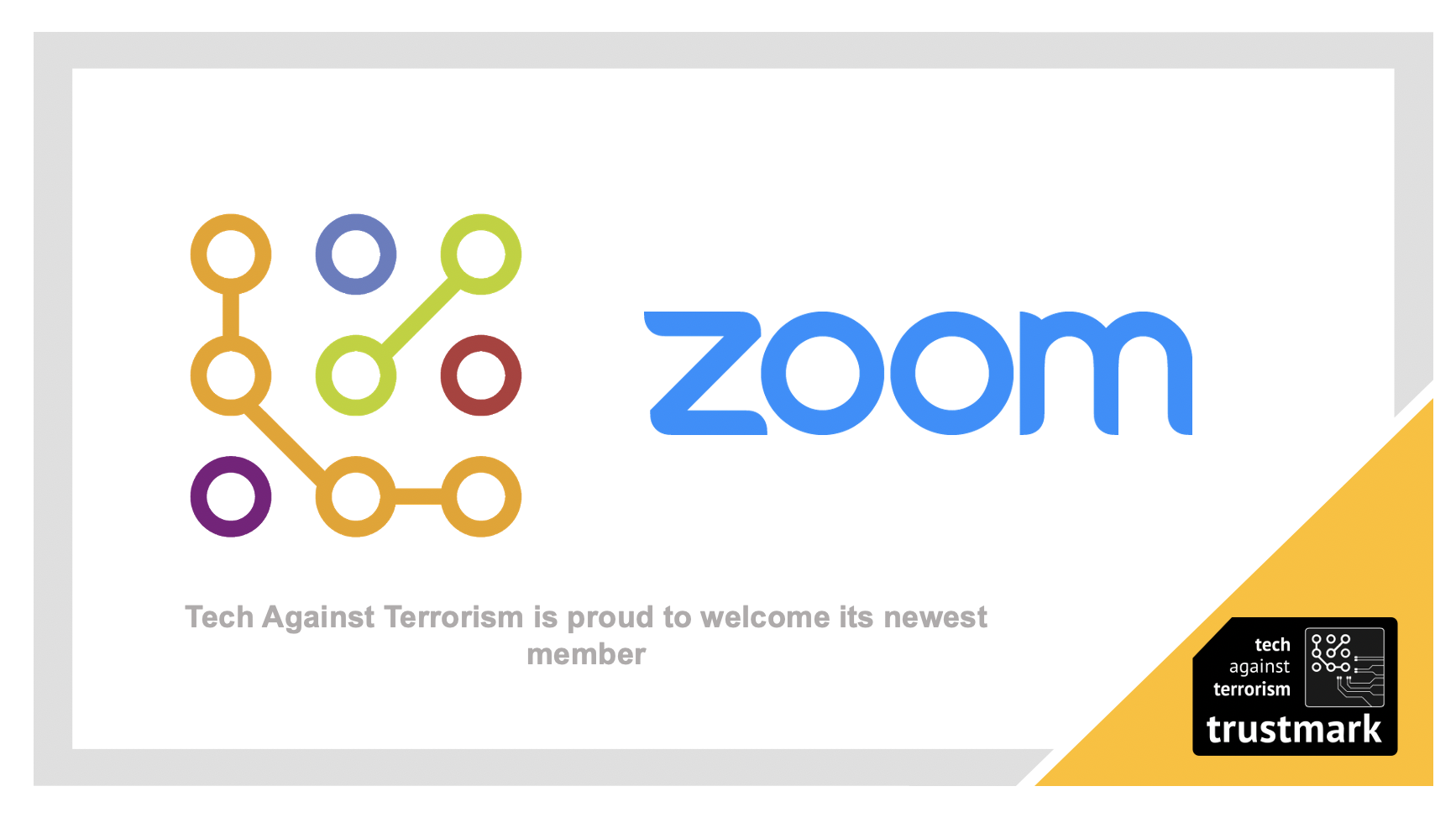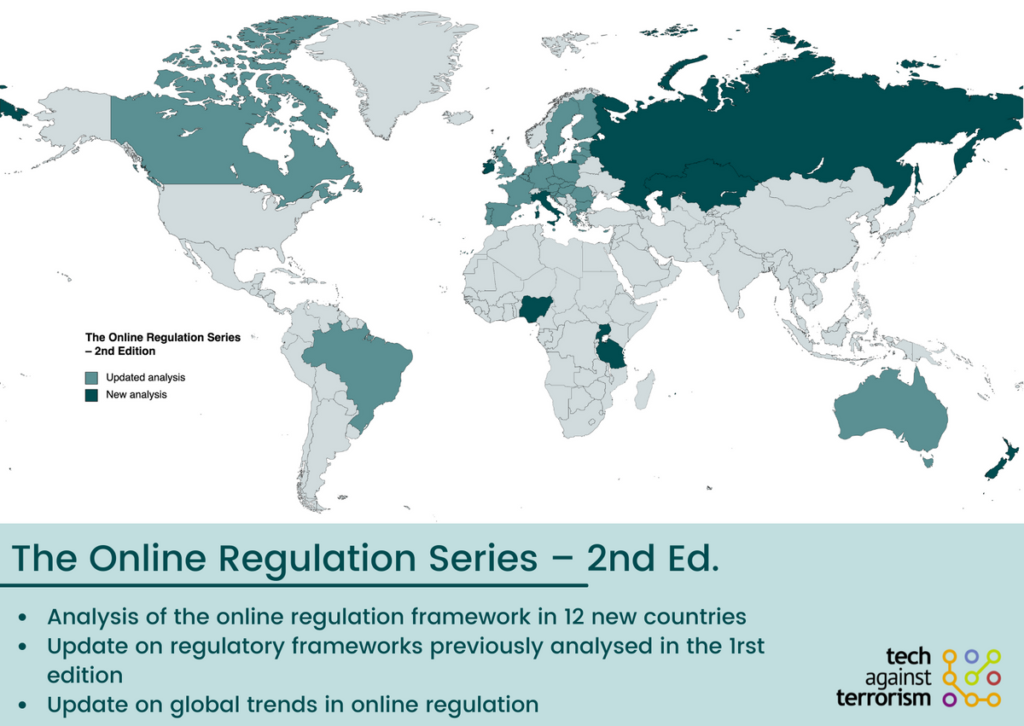Our weekly review of articles on terrorist and violent extremist use of the internet, counterterrorism, digital rights, and tech policy.
| Tech Against Terrorism Updates |
- We will be hosting our next webinar on “Technical approaches to countering terrorist use of the internet: URL sharing and collaborative tech sector efforts” on 31 March at 5pm - 6pm BST. If you would like to sign up to this free webinar, please register with your institutionally affiliated email address here.
- Thank you to everyone who tuned in for the first 2021 webinar of the TAT & GIFCT E-learning Webinar Series on, “The Nexus Between Violent Extremism and Conspiracy Theory Networks Online”. If you were unable to attend and would like to access a recording please get in touch with us at contact@techagainstterrorism.org.
Top Stories
- Earlier this week, Facebook unveiled its human rights policy.
AccessNow has written an analysis on the human rights policy, which you can read here.
At Tech Against Terrorism, we are committed to promoting human rights in our work supporting the tech sector in tackling terrorist use of the internet.- Since 2017, we encourage all companies we work with to sign the Tech Against Terrorism Pledge, which is based on international norms such as the ICCPR & UNGP on Business & Human Rights. The Pledge covers freedom of expression, non-discrimination and diversity, privacy, transparency and accountability, remedy, as well as collaboration.
- This year, we have updated our membership criteria – which companies need to meet before being granted membership – to include a requirement to offer users appeal mechanisms. Read more about our membership programme here.
- We also help companies understand emerging global regulation. In our Online Regulation Series, we examined regulation in 17 different global jurisdictions, and we will publish a handbook based on this shortly - stay tuned!
- We encourage policy-makers to consider the potential negative impact that regulation could have on freedom of expression and human rights. Recent examples include our analysis of the EU's Digital Services Act & terrorist content regulation, and Australia's Online Safety.
- Last year, we hosted e-learning webinars on transparency reporting and accountability mechanisms with tech representatives and human rights experts like Emma Llanso, Director of Center for Democracy & Technology’s Free Expression Project, and Jillian York, Director for International Freedom of Expression at the Electronic Frontier Foundation.
- We also recorded a podcast episode on online counterterrorism and human rights with Emma Llanso and Dr. Krisztina Huszti-Orban. Listen to the podcast here.
- Human rights frames our development projects at Tech Against Terrorism. For the Terrorist Content Analytics Platform (TCAP), we work with independent experts such as the Centre for Analysis of the Radical Right and others to ensure content accuracy and will establish an advisory board to allow for content review and appeals.
- Finally, we are also excited to announce that the Knowledge Sharing Platform is being updated and will be re-launched this year. The KSP will be packed with resources to help companies tackle terrorist use of their platforms whilst respecting human rights.
- The European Council has adopted the proposed EU regulation on terrorist content online.
Last year, Tech Against Terrorism published a piece in VOX-Pol on this proposal, which you can read here.
We also examined the existing online regulation landscape in the EU and how this applies to terrorist content as part of our Online Regulation Series in this blog post.
- This week the Justice Department and the US Department of Homeland Security released an unclassified summary of the joint comprehensive threat assessment on domestic violent extremism. View the full report here.
- The Office of the Director of National Intelligence has released a report on "Foreign Threats to the 2020 U.S. Federal Elections".
- Sweden's all-party parliamentary committee on constitutional affairs has announced that the Swedish constitution should be amended to enable criminalisation of 'association with terrorist organisations'.
Tech Policy
- The Internet Is Not Just Facebook, Google & Twitter: Creating A 'Test Suite' For Your Great Idea To Regulate The Internet: Mike Masnick highlights Daphne Keller’s argument on how so much of the effort at internet reform treats “the internet” as if it were solely made up of Facebook, Google and Twitter. In addition, the more that people talk about the internet as if it were those three companies, “the more it becomes a self-fulfilling prophecy”, in part because it guides regulation that is focused on the “problems” associated with those sites. Masnick writes how he was recently reminded of this issue with the reintroduction of the PACT Act. According to him, the PACT Act “treats the internet as if every website is basically Google, Facebook, and Twitter”, which has far-reaching implications for other companies. With this, Masnick includes Daphne Keller’s proposed solution: a “test suite” of websites that anyone proposing internet regulation should have to explore how the regulations would impact those sites, and against which all factual claims about "platforms" or "intermediaries" can be vetted. (Masnick, TechDirt, 18.03.2021).
- Livestreaming Bill Introduced After Christchurch Attacks Could Criminalise Innocent People: This piece, by Anjum Rahman, discusses New Zealand’s proposal on criminalising the streaming of offensive content and argues that it is “open to misuse and could lead to unnecessary harassment”. The bill, which was written last year and passed first reading on 11 February, seeks to address the issue of livestreaming following the livestreaming of the Christchurch Attacks. However, according to Rahman, it has some concerning elements that could put communities at risk. Rahman writes that the proposed amendments to this bill allow the Department of Internal Affairs (DIA) to appoint inspectors, who can issue interim notices deeming material objectionable based on “reasonable grounds”, which Rahman notes to be “a highly subjective test, open to bias, discrimination, and opening up the possibility to harass individuals and communities”. (Rahman, The Guardian, 14.03.2021).
- Twitter, Trump, and Tough Decisions: EU Freedom of Expression and the Digital Services Act: Christoph Schmon takes a closer look at freedom of expression rights in Europe. Schmon begins by listing comments of political figures, such as from Thierry Breton, EU Commissioner for the internal market, following the suspension of Trump’s social media accounts. Schmon writes that these comments were articulated using the argument that without intervention by governments, freedom of expression rights would be at risk. He then poses the question whether the lockout from certain social media channels actually constitute an interference with or even a violation of free expression rights in Europe. In exploring this topic throughout the rest of the article, Schmon analyses whether the EU Digital Services Act would address the problem of “powerful platforms making arbitrary decisions about speech they allow online”. (Schmon, EFF, 18.03.2021).
Christoph Schmon discussed online regulation in Europe at our webinar “The State of Global Online Regulation” in November. If you would like to receive the recording please contact us at contact@techagainstterrorism.org.
To learn more about online regulation in the EU, please see our blog post on the topic from our Online Regulation Series.
- This week, we’re listening to The Lawfare Podcast episode on The Good, the Bad and the Ugly of Section 230 Reform. In this episode, Evelyn Douek and Quinta Jurecic speak with Daphne Keller, the director of the Program on Platform Regulation at Stanford's Cyber Policy Center and an expert on Section 230 of the Communications Decency Act.
To learn more about Section 230 and its implications for tech companies, please see our blog post on the United States as part of our Online Regulation Series.
Far-right violent extremism and terrorism
- Pastel QAnon: Marc-André Argentino sheds light on the role of women in QAnon. The term “Pastel QAnon” is used by Argentino to reference a community of female QAnon or QAnon adjacent influencers initially found on Instagram but now present across multiple platforms (MeWe, Telegram, Parler, Gab, etc.), where “Pastel” signifies the aesthetic and branding these influencers provide to their pages and to QAnon. Argentino provides a breakdown of the type of influencer accounts that are found in his analysis of a sample of 76 influencers in the Pastel QAnon community, which he places into four categories: multi-level marketing, esoteric, alternative healing, and finally, lifestyle influencers. (Argentino, GNET, 17.03.2021).
Marc-André Argentino presented on QAnon in our webinar this week on “The Nexus Between Violent Extremism and Conspiracy Theory Networks Online”. If you would like to gain access to the recording of this webinar, please reach out to us at contact@techagainstterrorism.org.
For any questions, please get in touch via:
contact@techagainstterrorism.org


